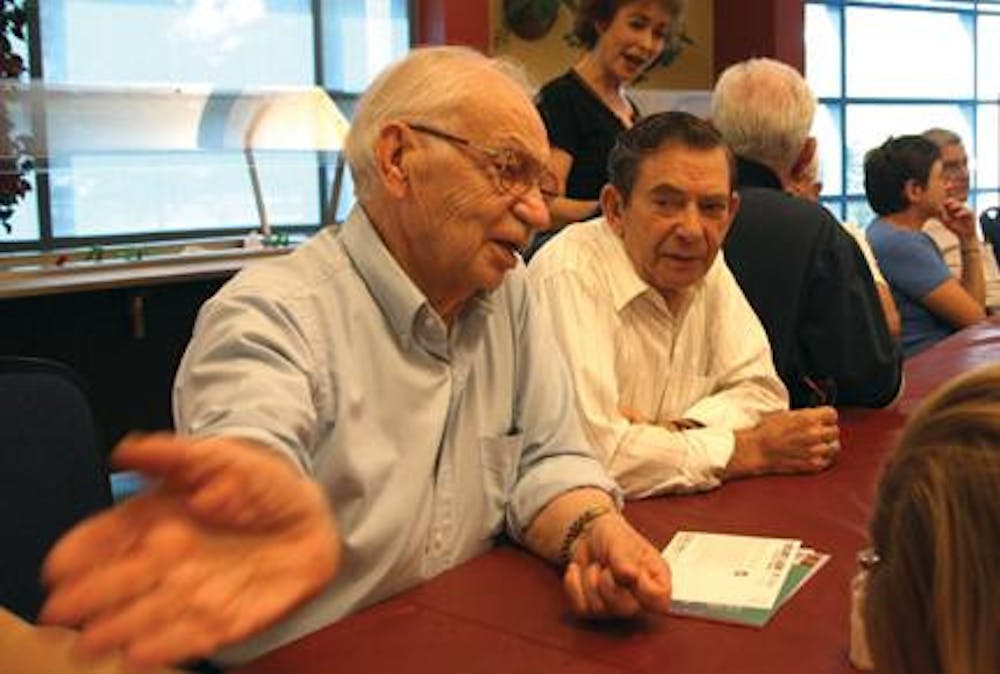On April 10, 1945, a 20-year-old American soldier named Vernon Tott took 19 pictures of Jewish prisoners at a slave labor camp, called Ahlem, that his division liberated in Germany.
The photos later dominated the last decade of Tott's life, which he devoted to identifying the gaunt and haunted faces he had captured.
On Wednesday, Tott's widow and four Ahlem survivors, two of whom were featured in the photos, came to UF for a screening of the university-produced documentary "Angel of Ahlem," which tells the story of Tott's journey to find the people in the photos.
Ben Sieradzki, Sol Bekermus, Ben Berkenwald and Chaim Melamed, the survivors, had lunch with students at Hillel at UF and talked about the legacy of Tott's work and their experiences at Ahlem. Sieradzki, Bekermus and Berkenwald were featured in the film, which was produced by UF's Documentary Institute.
After his quest to identify the survivors began in 1995, Tott met Bekermus, whose brother Abe was identified in the photos. He is pictured wearing a black suit once owned by a Hungarian Jew who was forced to leave his clothes behind.
Bekermus said that by taking the photos, Tott had evidence of the prisoners' suffering.
The prisoners of Ahlem never bathed, Bekermus said. They were usually given warm water flavored with seeds, except when the water was used to wash the floors.
They were overseen by German guards who were often taken out of prison to run the camps, Bekermus said. By the time the prisoners were liberated, many were too weak to eat.
"Pictures are more than words, more than books, more than anything," he said. "Those pictures are proof."
Before going to the screening at the Phillips Center for the Performing Arts, the survivors attended a reception at the Harn Museum with Tott's widow, Betty, and other guests.
Betty Tott said she saw the life come back into her ailing husband as he grew more and more dedicated to the unidentified prisoners in his photos.
He had been diagnosed with prostate cancer and suffered a mild stroke. He died in 2005.
"I would give anything for him to see this," she said. "He knew he wasn't going to live long enough to see."
In 2003, the Documentary Institute heard about Tott's story. Churchill Roberts, the institute's co-director and one of the film's directors, said he hoped people would be moved by the religious and cultural barriers that Tott crossed.
"It's a bittersweet thing," Roberts said of the film.






